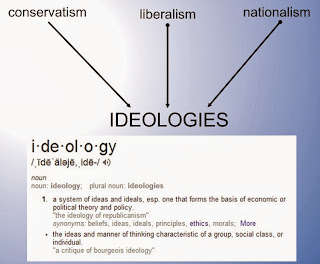Why Our Grading System is Failing Our Kids
"Mommy, I have a stomach ache because I got a 90."
That is one of the last things my first grader said to me before she went to sleep tonight. I've never written a post from the parent perspective before. This is new territory and I've avoided it until now because my expertise and experience lies in secondary education. I didn't feel it was my place to comment on elementary education without studying and experiencing it.
The thing is, I have an expertise at being a mother of two little girls who are just starting school–one is in first grade and the other is in preschool. My daughters’ game of choice is "playing school" with a little easel and some books and paper and a class made up of dolls and stuffed animals. They teach through singing, drawing, and encouragement. They build in rest time and quick chats with the pretend parents who pick up their stuffed animal students at the end of the day. It's funny how my 4 and 7 year olds have intuitively picked up the parts of a learner's day that have the greatest impact. They know that music, hands-on activities, and positive interpersonal connections help create an environment where learners can thrive.
When do we lose that?
For my child, it started to happen today at age 7 and in first grade. She has a great teacher who has not emphasized test scores at all. Today they went over an assessment together and each student figured out how he/she did. As a teaching practice, I definitely see the value. But my daughter somehow interpreted that she did something "wrong" and it followed her all day until she said something to me at bedtime. She even narrowed it down to a score. She gave herself a 90. That 90 made her stomach ache. It isn't her teacher's fault. Maybe it is my fault. I'm her mom and I knew how to play the grades game in school. She's got my genes, for sure. I'm also an educator who talks education...a lot, and she hears some of it. Or maybe she's learned about grades from the chatter of the older kids on her school bus in the morning. More likely she's learned it from all of these sources combined. It isn't really about fault or blame. It's about what I learned about learning tonight.
 A teeny tiny part of my little girl started to understand that number ratings will somehow shape how others measure her success. Eventually they might shape how she measures her own success. I'll do everything I can to make sure they are only one factor, one of many, and not THE factor. I'll make sure those numbers pale in comparison to the importance of her actions and intentions. In fact, she and I had this discussion last night. It might have been the first time, but I know it will not be the last.
A teeny tiny part of my little girl started to understand that number ratings will somehow shape how others measure her success. Eventually they might shape how she measures her own success. I'll do everything I can to make sure they are only one factor, one of many, and not THE factor. I'll make sure those numbers pale in comparison to the importance of her actions and intentions. In fact, she and I had this discussion last night. It might have been the first time, but I know it will not be the last.
Maybe it is idealistic to expect the education machine to transition to a gradeless, learner-driven, standards-based place where our children understand that iteration is a part of the learning process. Iteration is not the same as getting something "wrong" or "failing" and then trying again. Iteration is what motivates us to start over and over when we are playing video games, or when we don't instantly solve a puzzle at first glance, or when we are learning the words to a new song we like. Iteration is how our little ones learn to read: they try to sound out, decode, and apply meaning to words. They are not successful with every word, but they are not told they are wrong. They are told to try again and are given encouragement. Why does that mindset change in first grade? Sixth grade? High school? College? The workforce? Ever?
If my preschooler and first grader are aware of the elements needed to help a learner thrive, why are those elements deemphasized as children grow and rise through the grade levels? The way formal schooling is structured now–around grades and percentages–is failing our kids.
Should we change it?
Can we change it?
Will we do something to change it?
______________________________________________
Thank you to Mark Barnes for welcoming me as a guest on his Hack Learning podcast after reading this post. We got to talk about this topic, my experience with my daughter, and provide some ideas for parents and educators facing this same situation. You can listen to the podcast here.
______________________________________________
 |
| Hack Learning Podcast |



.jpg)
Comments
Post a Comment